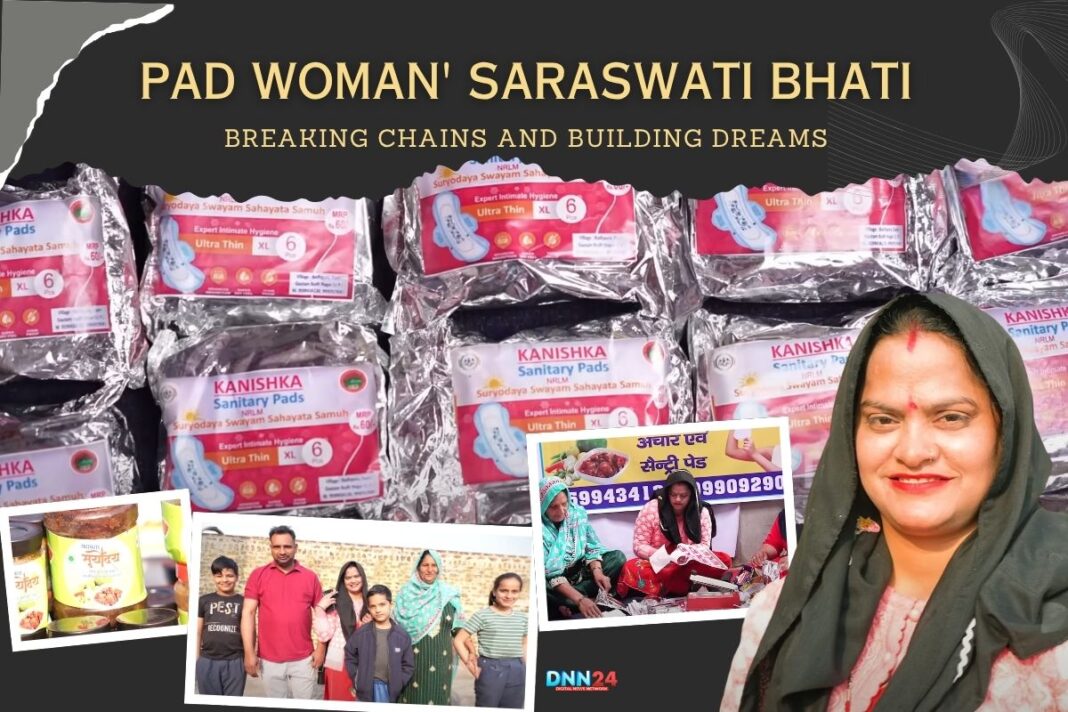Saraswati Bhati’s story is not just about one girl—it’s about every woman who dared to dream but was stopped by society’s walls. Born to a poor village where girl children were born to serve the house, not to be educated, Saraswati had some woods of hope within her heart. Nobody could put out that fire of hope.
She was only 16 when marriage bells rang, and she had to stop studying at the 10th standard. “My father said I had studied enough,” she recalls with a sad smile. It appeared that her visions of becoming a policeman or soldier in her childhood, based on the fact that her physique is strong and her charismatic spirit, fell like a dry leaf. However, life did not come to order.
Family pressure even prompted her to step back even after getting married when her husband invited her to continue with studies. “They said, ‘What will she do with more education? She has to manage the household,'” she remembers. The young bride sacrificed her dreams for harmony in her family without knowing that destiny had something greater in stock for her.
In that small village of Badhpura, where talking about periods was still taboo, where women whispered about “those days” and used old cloth pieces in shame, Saraswati saw an opportunity that would change everything. She didn’t know then that she would become the voice that would break centuries of silence around women’s health.
When Periods Became a Purpose
This was the start of the road to empowerment, as Saraswati opened a little cosmetics shop. She had observed the functionality of different brands of sanitary pads: some work, and some are defective. Her husband, seeing her keen observation, suggested something that initially shocked her: “Why don’t you start your own pad business?”
“When he first mentioned pad business, it felt so strange,” Saraswati laughs now. “I thought, what will my in-laws say? What will people think – that she’s selling pads?” The social stigma was a fact, and it was a part. But then her husband showed her the movie “Pad Man” and said something that changed her perspective forever: “Look, you’re a woman, and you’re hesitating about this. This man didn’t hesitate.”
Saraswati, along with her husband, went to Delhi, Ghaziabad, and Noida in search of quality raw materials. She borrowed 50,000 INR from her self-help group. She demanded quality from many manufacturers who provided cheap services. “We decided that even if our product costs more, we’ll give women the best. Good feedback is our best advertisement,” she says with pride.
The first days were challenging. She could not visit male shopkeepers and explain her product to them. “How do I tell these men that I’m making pads? Please buy them?” she wondered. Yet her husband was with her through all the steps and assured her that she would not have these awkward experiences.
The Busting of the Silence, the Creation of the Trust
Saraswati coined that the real test was when she started approaching women in her cluster-level meetings. “I showed my pad to eight village women and asked them to try it,” she recalls. Their response was heartbreaking: “Sister, we won’t use it. We’ve tried pads before and they spoiled our clothes. We’ll stick to cloth.”
But Saraswati didn’t give up. She persuaded them to try it once. It was a magical transformation. One woman purchased an additional 50 packets right away. “Sister, your pad is excellent in quality. I did not know that I could use pads since I simply used cloth. You explained how cloth causes diseases—I used to face problems every month, but your pad gave me such good results.”
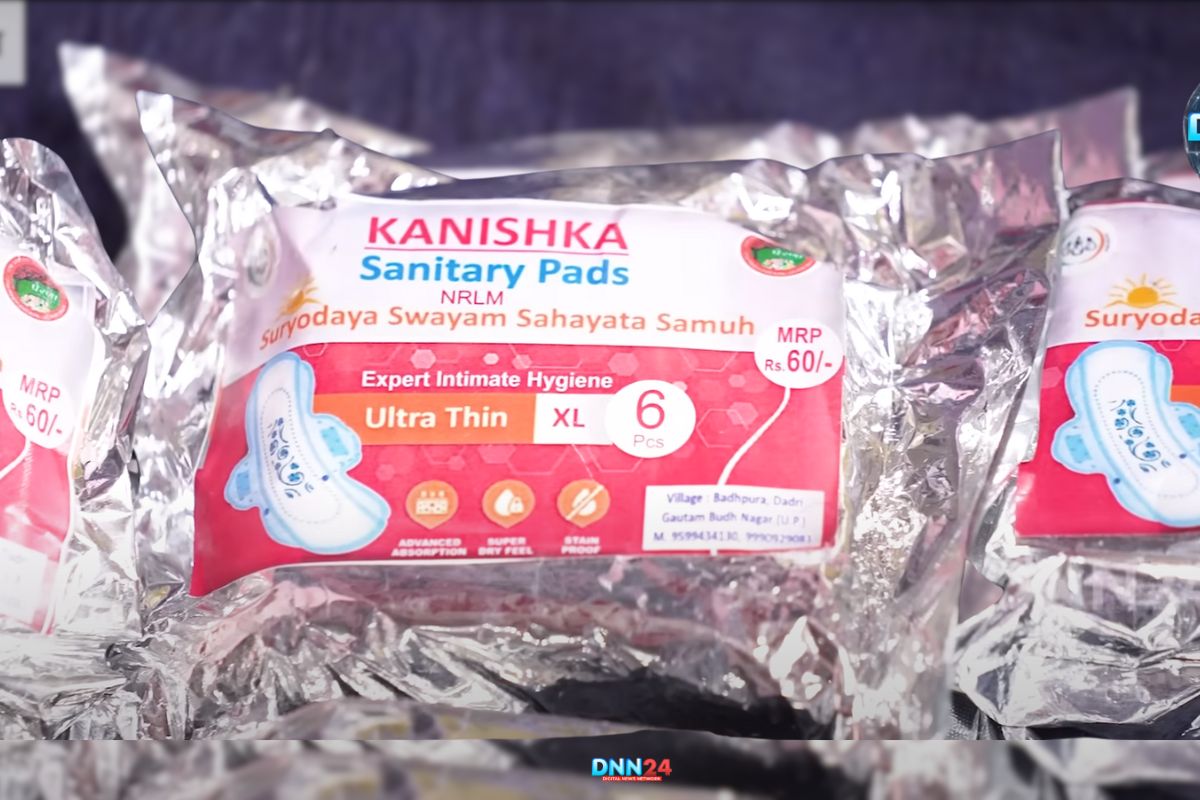
The news flew like a bushfire. Women who had been living silently all these years got their voices heard. “If you want to use pads, use Kanishka Sanitary Pads—they give excellent results,” became the common recommendation among village women.
This change of attitude was terrific. Initially, people mocked: “Look, she’s selling pads – is this any good work?” However, nowadays, when it comes to orders of 20000-50000 rupees, the same families smile with pride. “Everyone feels happy that she’s doing her own business successfully.”
Saraswati Bhati: The Making of Women Empowerment Army
Success for Saraswati wasn’t just personal profit—it was about lifting other women. In her village, 19 self-help groups exist, and her “Surya Uday Group” has 10 women. Once the orders become big, she uses women of various groups, which form employment between 15-20 villages.
“Women call me from 15 kilometres away—’Sister, we need 200 packets today,'” she says with satisfaction. Her connections go to NGOs, the HCL Foundation, government hospitals, and schools. Her common customers are nurses, teachers, and social workers.
Along with her monthly sales of 30,000- 40,000, the products have found their way to Banaras, Agra, Punjab, Sambhal, and Sonbhadra. The officers at block and district levels assist her in her job by giving directions on packaging and business strategies.
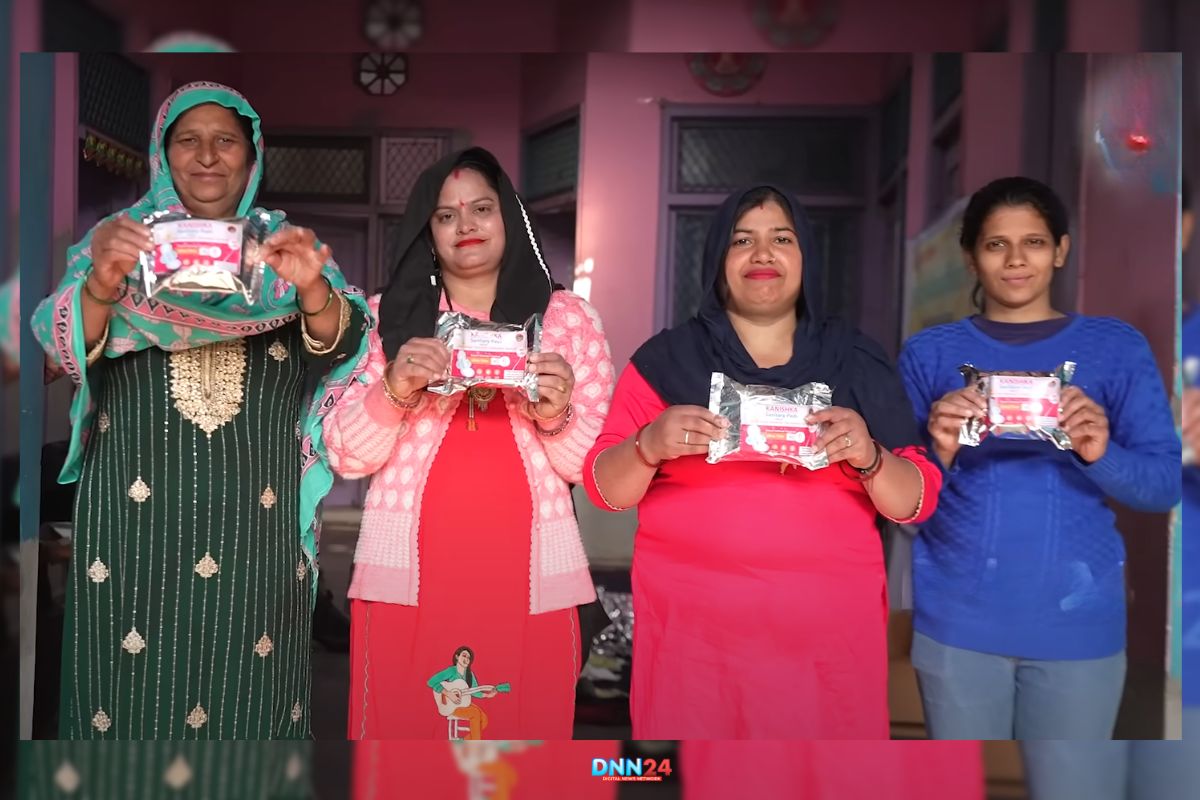
However, the real win is happening in a change of heart. Women who previously talked in hushed tones about their periods are now openly discussing menstrual health. They are aware of the health hazards of using clothes and instead adopt safe and hygienically clean alternatives. Saraswati didn’t just sell pads—she sold dignity, health, and confidence.
Beyond Pads The Pickle and Papad Empire
Lockdown brought with it more challenges, but Saraswati seized the opportunity. After pickles became rare in markets, she assembled five women in her group and began producing homemade pickles. Their kitchens were the magic attached to the use of locally grown chillies, carrots, and radishes in the village farms, and the mangoes and other items needed to create magic foods were found in and around the Dadri market.
“We make 10-12 varieties—sour lime, sweet lime, mango, green chilli, red chilli, garlic, ginger, cauliflower pickles,” she proudly lists. The quality was so good that even Delhi’s Lemon Tree Hotel started ordering from this small village entrepreneur.
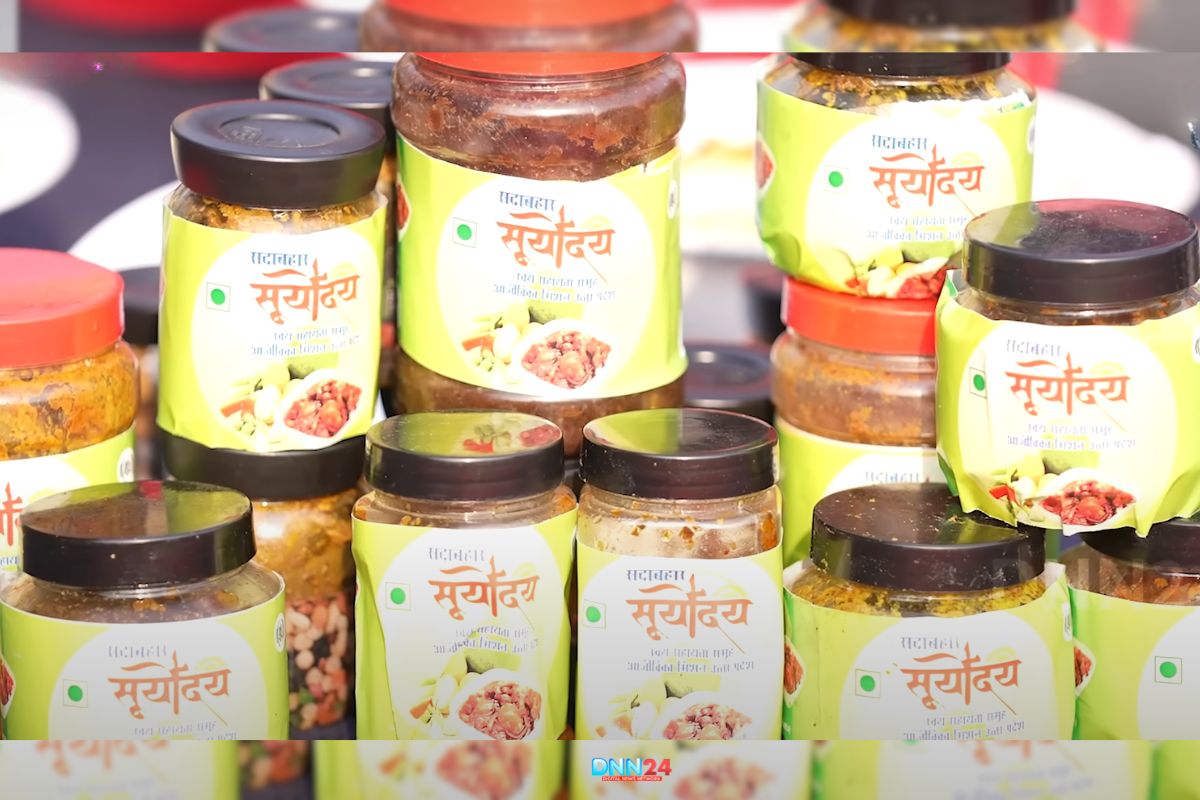
“I never imagined my pickle would travel from my village to Lemon Tree Hotel,” she says with wonder. The mission of the self-help group had really made a small girl in a village into an affluent businesswoman.
Papads created another success story. When Gautam Buddha Nagar’s Amrit Maitri Foundation contacted her for pickle samples, they were so impressed they asked about papads, too. “Can you make papads?” they asked. Saraswati’s confident reply was: “Just tell me once—we’ll definitely make them.” Then, papads made of semolina, potato, and rice joined her product line.
Dreams and duties stand for each other
Managing a growing business while raising three school-going children and caring for her joint family isn’t easy. “I have to wake up early, finish household work, send children to school, then attend to orders,” Saraswati explains her daily routine. By 10 AM, house chores must be done before jumping into business.
She has to count a 6-member family, including her father-in-law, husband, sister-in-law and three children, which requires a certain level of effective time organization. “If I have to deliver orders outside, I complete all home responsibilities first,” she says, embodying the strength of countless Indian women who juggle multiple roles seamlessly.
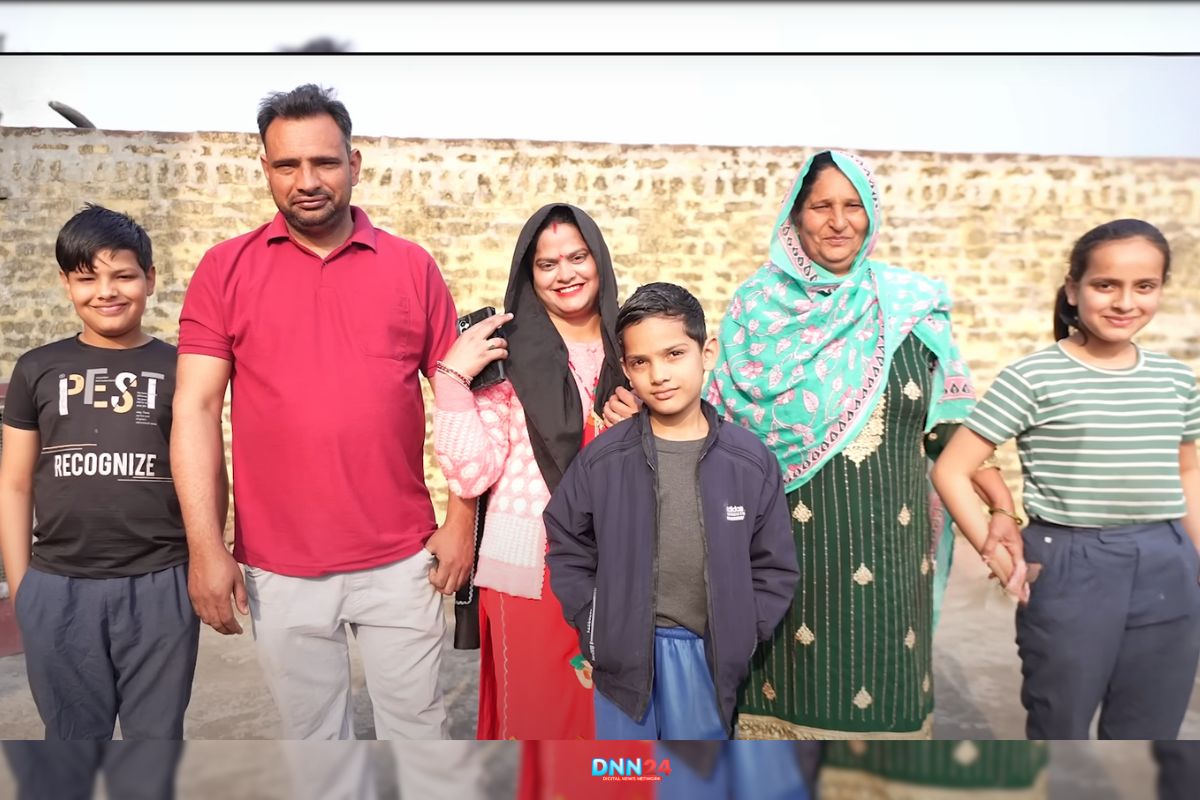
The support system, especially her husband’s unwavering faith, became her backbone. “At every step, my husband stood with me,” she acknowledges. He was literally her business partner; he helped her conduct every initial talk with the shop’s masculine owners, described the quality of the products, etc.
The crucial role in packaging support and provision of solutions was played by the District and block officials BMM, VDO, ADO, DDO, and CD; they proved the point of determination, and institutional support led to magic.
The Ripple Effect of One Woman’s Courage
Today, Saraswati Bhati stands as proof that change doesn’t require grand beginnings—it needs genuine intention. Her journey from a 16-year-old bride with shattered dreams to a great businesswoman and a hope bearer to hundreds of women demonstrates the force of resilience.
Her mother’s secret support in sending her to school despite her father’s objections planted the seed of this transformation. “My mother secretly sent me to school,” she remembers gratefully. That mother’s small act of rebellion created a businesswoman who now employs dozens of women.
The rewards also followed—the district and block-level schemes used to reward women such as her with excellent work. However, the actual payoff is transformed lives. The fact that women not long ago felt embarrassed about periods and now talk about menstrual health with confidence is also indicative of the successful work done by the activists. Villages that whispered about feminine hygiene now celebrate women’s entrepreneurship.
Saraswati’s message resonates beyond business success. She showed that the barriers present in society only exist till a person who is not afraid appears. Her story echoes the dreams of countless women who compromise their aspirations for family expectations, showing them that it’s never too late to restart the journey toward fulfilment.
From periods to pickles, from taboo to triumph – Saraswati Bhati’s journey continues to inspire women to believe that with determination, every chain can be broken and every dream can find its wings.
Also Read: Pad Squad: Spreading Menstrual Dignity Across India’s Communities
You can connect with DNN24 on Facebook, Twitter, and Instagram and subscribe to our YouTube channel.

